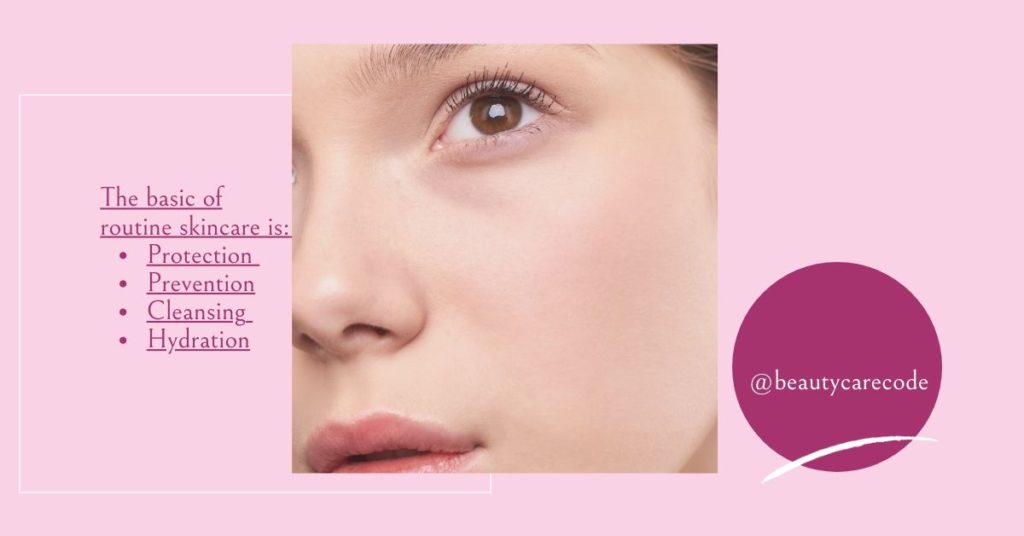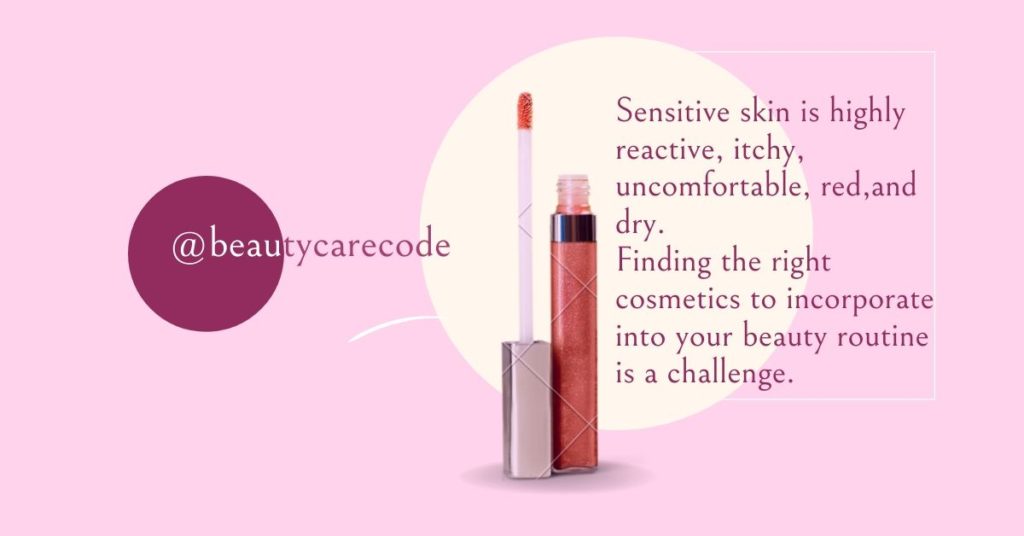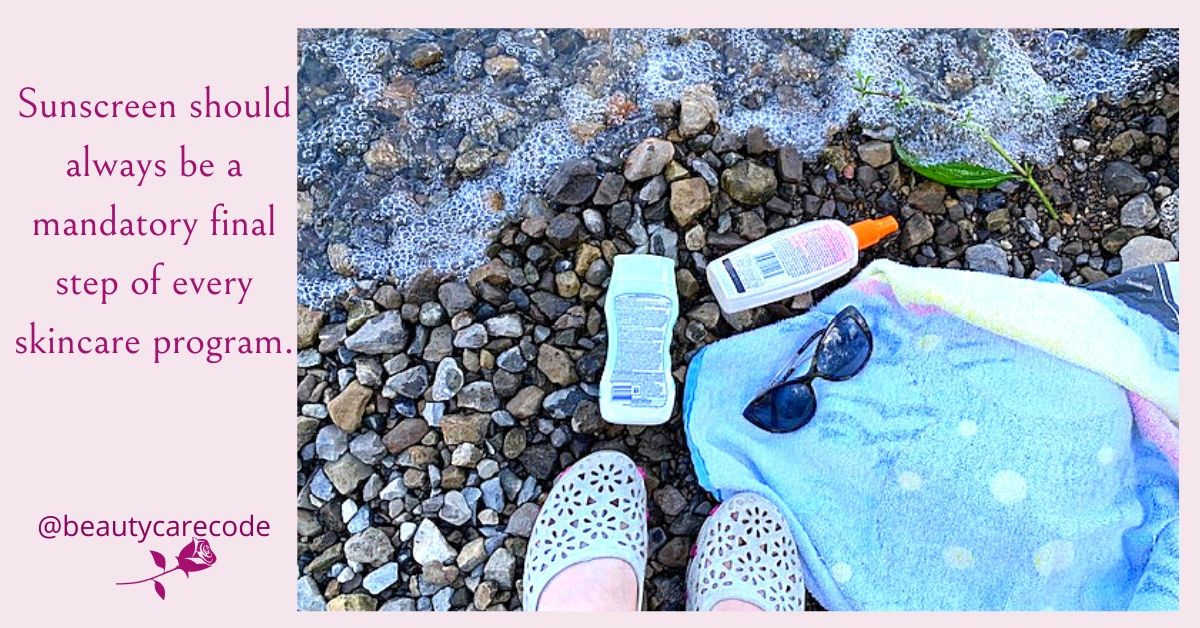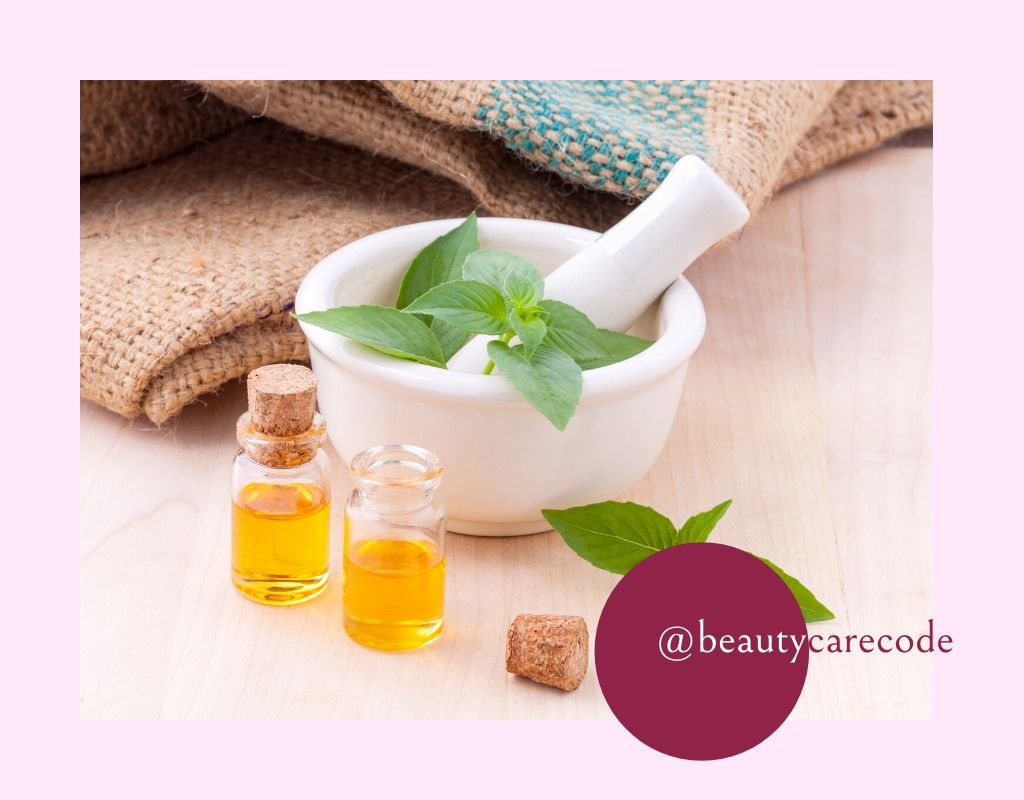What is skincare?
Did you know having impeccable skin is the human being’s most desired at all times?
To achieve that desire, people are always looking for advice from dermatologists, pharmacists, cosmetician, friends, experts or blogs to find the best skincare products ever. In this article, I collected top tips for healthier skin. If you apply these top tip you surly will have healthier skin.
Why is it important to take care of the skin?
Skin is the largest organ in the body.
Our skin has important functions:
- Protection from bacteria and harmful elements
- Sensation, it reacts to pressure, touch, heat, cold and vibration
- Regulation of body temperature
- The water-resistant barrier prevents loss of water and essential nutrients
No wonder you have to take care of your skin. By doing your routine skincare, you ensure restoring skin functions as an organ and also maintain beautiful healthy looking that improves self-confidence and self-esteem.
Skincare practices
Caring for the skin is more than just applying the best products. Skincare is a series of different practices that improve skin condition and appearance.
They include:
- A balanced healthy diet, nutrition plays an important role in the maintenance of healthy skin
- Healthy lifestyle (e.g. no smoking, good night sleep)
- Protecting your skin against harmful UV light
- Appropriate use of moisturizers and emollients
The basic of routine skincare
The basic of routine skincare is:
- Prevention
- Protection
- Cleansing
- Hydration

What is sensitive skin meaning?
Why my skin is sensitive and itchy?
Sensitive skin is not a skin disease, it is a self-diagnosed condition in which your skin is prone to itching and irritation to some degree when applying cosmetics or any skin products. Temperature, UV light, wind, medications, pollution, stress and hormones can deteriorate skin sensitivity.
How to take care of sensitive skin?
Taking care of sensitive skin follows the same principle as other types of skin, protection, prevention, cleansing and hydration.
However, choosing the right product requires attention and research.
The goal is to apply the products not only to support the principal of the skincare, but to soothe itching and inflammation present in sensitive skin with minimum chance of causing an allergic reaction.
Emulsifiers or preservatives in topical products can cause allergic reactions. In products particularly designed for sensitive skin, these ingredients are cautiously picked to ensure the final products meet the criteria to be designated for sensitive skin.
As a general rule, it is wise to recommend products with a limited number of ingredients to minimize any potential irritants.
If you like to know more about daily routine for sensitive skin, the type of cosmetics and cleansing the skin you can read the related articles.

Natural skincare products
Chamomile benefits in sensitive skincare products
Some study has reported that topically applied cosmetic products containing chamomile have shown anti-inflammatory properties and can soothe sensitive skin.
Bisabolol is an active plant extract isolated from German chamomile and has shown anti-inflammatory and skin-soothing properties.
However, chamomile tea may cause some systemic reactions, contact dermatitis and eye irritation if applied near the eyes (in eyewash).
Rosewater benefits for sensitive skin
The benefits of rose water in human health have been mentioned extensively in traditional medicine.
Some research studies also showed benefits of rose water for medicinal purposes such as analgesic, antitussive, antibacterial.
Rosewater has also been shown to have an anti-inflammatory effect which is beneficial to reduce redness and soothes sensitive skin.
The antibacterial effects of rose water may improve the appearance of acne-prone, blemished and inflamed skin.
Rosewater can be a natural soothing toner. You can just rinse your face with rose water after cleansing your face.
You can also mix it with glycerin to have more viscose liquid which is easier to use. Glycerin is used in many beauty products and mixing it with rose water makes an excellent toner. It hydrates your skin and if you use it regularly it reduces itching, inflammation, and redness.
You can find the mixture in drugstores or you can make your own.

Homemade rosewater toner recipe
Simply mix 1 ½ cup rose water with ¼ cup glycerin. Pour the mixture in a spray bottle for easier application.
If it is your first time using rose water, try it on your hand first, in case you get irritation or any sign of allergic reaction avoid using it.
Rosewater can nicely fit in the recipe of moisturizers. You can find the recipe for a simple homemade hand cream here.
Is rosewater good for your hair?
Yes!
Rosewater has mild astringent property and helps to reduce dandruff and excess oil. After shower apply some rose water on your clean scalp. Leave it there for a few hours or overnight. Repeat this regularly and it reduces dandruff.
You can apply rose water on the scalp for certain conditions like psoriasis and eczema, because of anti-inflammatory properties, it soothes the scalp and reduces the itching.
You can apply it on your scalp by pouring some drops in your scalp and leave it for overnight or several hours.
Rose water is a nice conditioner, decreases the frizz plus your hair will smell like rose flowers. Pour some rose water in a spray bottle and spray it on your hair after the shower or anytime you like to have a shiny looking hair.
Rose water in drinks and recipes
Oral consumption of rose water is safe and is widely used.
You can add rose water to your drinks especially icy summer drinks. It gives you cooling hydrating effect.
Mix 3 Tsp of rose water, 2 Tsp of maple syrup, 1 Tsp of chia seeds in a cup of ice-cold water. Maple syrup, honey or sugar is your choice you can add either of them.
You can also add rose water to your cooking or baking recipes. Rosewater and saffron are the especial flavours of many desserts.
Rosewater and witch hazel
Rose water can be mixed with witch hazel in a toner.
Witch hazel is a flowering plant with many medicinal properties in traditional medicine. The leaf, bark, and twigs are used to make medicine.
It has astringent and anti-inflammatory properties so it may be effective for hemorrhoids, minor bleeding and skin irritation. You may have seen witch hazel water in pharmacies. You can use this water on your itchy scalp. It may also soothe eczema and psoriasis.
However in some people, it might cause minor skin irritation.
Oral consumption of witch hazel may upset stomach or cause liver problem.
Dermatitis
Atopic dermatitis versus eczema
Atopic dermatitis is also called eczema. However, dermatologists mostly use the term dermatitis to describe an acute, nonspecific skin reaction that exhibits swelling, redness, scaling, vesicles and crusts.
Dermatitis starts normally from childhood. It improves over time without complete resolution. Patients typically have flares of dermatitis that present as patches of redness and scale.
Flare is a term to describe the phase when the eczema is in the acute or active phase and the skin is in the most irritable condition.
Are eczema and asthma related?
Atopic dermatitis (eczema) may be associated with other atopic conditions such as asthma, allergic rhinoconjunctivitis and food allergies.
Dermatitis from acute to chronic stage
Dermatitis may progress to a chronic stage where the skin becomes dry, fissured and cracked. With prolonged itching and scratching it thickens, and the normal skin markings become more prominent.
The skin may show damage from scratching and hyperpigmentation or hypopigmentation.
Why do I have dermatitis?
Atopic dermatitis affects 10–20% of the population. The disease is genetically associated, with a risk of 70% if both parents are afflicted, and a higher risk of inheritance from mother than father.
Genetic impairment of the epidermal barrier has been proposed as a cause of atopic dermatitis.
What are risk factor of dermatitis?
Atopic dermatitis patients have an increased personal or family history of the atopic syndrome, including type 1 allergies (immediate hypersensitivity), hay fever, asthma and chronic allergic rhinitis/conjunctivitis
Age: Dermatitis can occur at any age, but atopic dermatitis (eczema) usually begins in infancy.
Environmental Allergens: Excessive use of soaps, detergents and shampoos irritate the skin and disturb the skin barrier.
climate: heat may worsen skin condition.
Sweating is the most common trigger of itch.
Stress may enhance skin irritability, itching and sleep disturbances.
Eczema (atopic dermatitis) affects your skin’s ability to protect you from irritants, If you have eczema your skin gets sensitive to many products like perfume, skincare products, laundry detergents or shampoo that don’t normally bother other people.
Itchy skin after moisturizing
Moisturizers are first-line therapy for mild eczema and an important part
of the treatment regimen for moderate and severe disease. They also play a key role in maintenance treatment and prevention of flares.
However, the type of moisturizer you use is very critical.
You should apply moisturizer free of irritants such as dye or fragrance, otherwise, instead of moisturizing, you will have itchy skin and your condition get worse.
If you are experiencing flares, moisturizers by itself are not enough to soothe and treat your condition.
You should use topical corticosteroids once daily and if insufficient for control, you can use them twice daily.
You can continue twice-weekly maintenance therapy if you are having moderate to severe atopic dermatitis experiencing frequent relapses.
Twice-weekly maintenance therapy is more effective than the use of moisturizers alone for the prevention of flares
How can I prevent eczema naturally?
Probiotics during pregnancy
Research studies show when pregnant mothers use probiotic during pregnancy, the development of atopic dermatitis (eczema) in the child my be reduced.
Available evidence shows it is reasonable for a high-risk mother (e.g., one who has other children with atopic dermatitis) to take probiotics pre- and postnatally while breastfeeding (or administer them to her infant orally) to reduce the risk of her baby developing atopic dermatitis.
For more detailed information about dermatitis and prevention, you can read this article.
Can skincare cause acne?
Yes and no.
Yes! Heavy cosmetic and oily skincare products can cause or exacerbate acne.
If you have acne-prone skin you may be afraid of applying any skincare product due to the possibility of exacerbating your acne. You are right.
However, if you apply the right product, you can effectively manage your acne and you can restore your skin beauty and shine.
Finding the “best” acne skincare products depends on your underlying skin type (oily, dry, or combination), acne severity, and the specific secondary issues you wish to treat, including ageing, sensitivity, or pigmentation.
As a general rule, gel-based products are best for oily or acne-prone skin, whereas cream or lotion-based products are better for normal to dry skin.
If you like to read more about acne care, risk factors and treatment and multi-step cosmetic program for acne, you can find lots of detailed information in this article.
Why do we need sunscreen?
Applying sunscreen is one of the basic skincare needs, which falls in the category of “protection”.
Sun damage mostly results from everyday ultraviolet exposure, rather than occasional exposure when you go on vacation.
Therefore sunscreen should always be a mandatory final step of every skincare program.

According to Canadian dermatology association the sunscreen you choose must meet the following criteria:
- Broad-spectrum with an SPF 30 or higher
- Low potential for irritation
- Minimally perfumed or non-perfumed, perfumed products may cause an allergic reaction or irritate the skin.
- Non-comedogenic, so it does not cause or exacerbate acne
For more to know about UV lights, what is sun protection factor (SPF), how and when to apply sunscreen, please refer to this article, you will find details about sunscreens.
Please share your experiences, your knowledge, your questions and comments.
Please share this article with anyone who might be interested!

Woh I enjoy your posts, saved to my bookmarks!
Wohh just what I was searching for, appreciate it for posting. I love your website!
Some really great info, Gladiola I detected this. I’m not spaming. I’m just saying your website is AWSOME! Thank you so much! Please vist also my website.
Thank you, sure
I reckon something truly special in this website.
I am incessantly thought about this, thanks for posting.
I got what you intend,bookmarked, very decent website.
Definitely, what a great blog and revealing posts, I definitely will bookmark your site. Best Regards!
I’m extremely pleased to discover this website. I wanted to thank you for ones time just for this fantastic read!! I absolutely enjoyed every part of it and i also have you bookmarked to see new stuff in your site.
I’m extremely pleased to discover this website. I wanted to thank you for ones time just for this fantastic read!! I absolutely enjoyed every part of it and i also have you bookmarked to see new stuff in your site.
I’m extremely pleased to discover this website. I wanted to thank you for ones time just for this fantastic read!! I definitely enjoyed every part of it and i also have you bookmarked to see new stuff in your site.
omg i literally dont even need google anymore. i just come to your page and read your posts. they are so helpful and amazing.
I am more than happy to hear that, thank you so much for your words.